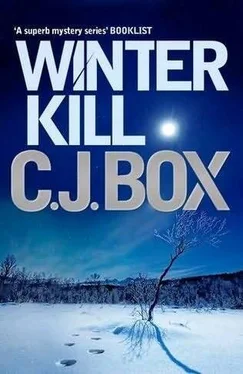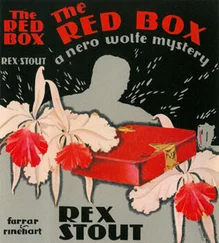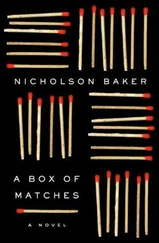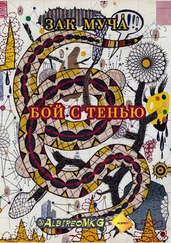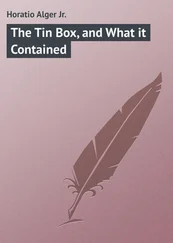The thought of McLanahan grumbling and digging through the powder made Joe smile to himself.
“I think I’ll find out where these tracks end up,” Joe said. “They go west toward Battle Mountain.”
He heard Brazille consulting with Barnum for a moment, then Brazille came back on.
“Don’t confront anyone if you find them,” Brazille said. “And keep your radio on at all times.”
“Will do,” Joe said.
“Sheriff Barnum asked me to tell you not to do anything that will piss him off.”
“I don’t think I can do that,” Joe said.
Joe and Barnum had never been close, but their working relationship had been strained further since the previous summer. Joe had suspected Barnum of complicity and corruption in regard to the events that took place at Savage Run. But there was no proof, and the sheriff had fessed up to nothing. There was now an underlying hostility between them, and Joe knew that someday it would break out into something ugly.
Before restarting his machine, Joe photographed the tracks, the remnants of the carcasses, and the blowback and jotted his observations in his spiral notebook. He patted his coat to make sure he had everything he might need: binoculars, handcuffs, pepper spray, batteries for the radio, his.40 Beretta.
Then he fired the motor, goosed it, and sat back as he entered the timber, staying in the tracks of the visitors.
Over the top of the west rim, six miles into the forest, the tracks stopped at a forest service road. Joe was out of the wind now, on the south side of the mountain, and the snow was not as deep. The vehicle that had pulled the snowmobile trailer up the mountain was long gone, but Joe could see footprints in the road where someone had loaded the machines, and where the truck had turned around. He took more photographs.
The reception was scratchy, but he was able to reach Brazille on his radio and tell him what he had found.
“Never mind that,” Brazille answered. “We just got a report that a rancher saw a vehicle coming down the mountain that night about the same time as you did. The rancher says he identified the vehicle and the driver and that he’s some bad-ass local yahoo who lives alone out in the sticks. So we’ve got to get back down in the valley and regroup. And get this,” Brazille continued. “He’s a bow hunter.”
Then Joe heard Strickland’s voice from somewhere near Brazille: “Let’s get that bastard.”
When Joe returned, the team was trudging back to the Sno-Cats carrying the section of tree with the arrows in it. Joe shuttled back and forth between them and the vehicles, giving rides on the back of his snowmobile. The Sno-Cats roared back to life and started clanking down the mountain, but then Joe saw the lead machine stop abruptly. The driver crawled out, and was peering under his vehicle. Joe got out of the cab and walked over to him. They were joined by Melinda Strickland.
“Aw, I’m so goddamned sorry about this,” the driver said, clearly upset. “I saw that little dog dart right under my track and felt the bump before I could do anything about it.”
Joe squatted, trying to see any sign of the dog under the heavy metal track. He could see a tuft of hair on the snow, and the still paw of the Yorkie sticking out from beneath the metal cleat.
He braced himself for the explosion. It didn’t come.
“The only place that dog could run was in the packed down snow from the Sno-Cats. It’s too deep everywhere else,” the driver said. Joe noticed that his eyes were moist and he looked like he was about to be ill.
More of the team had gotten out and were standing around the lead Sno-Cat, looking down at what remained of the dead Yorkie.
“How did the dog get out of the Sno-Cat?” Joe asked.
“I didn’t let it in,” Strickland said.
Joe felt a chill. It had nothing to do with the cold.
“Ma’am, I’m so…,” the driver started, but Strickland dismissed him with a wave of her hand. Joe watched her walk clumsily back through the snow toward her vehicle. If she was upset, he couldn’t tell.
As she opened the door to climb back in her vehicle, she glared at the men still standing in the snow.
“We need to stop wasting time here,” she snapped. “Lamar Gardiner’s killer isn’t going to wait for us .”
Everyone stood there for a moment, then silently shuffled back to their Sno-Cats. The first machine lurched forward and resumed its pace. From the second, Joe saw a flat, tan, pie-shaped object in the road. He winced as he rolled over it, but there was no bump.
The suspect’s name was Nate Romanowski, and he lived on a small tract of land south of Saddlestring near the river. Joe had heard the name before, somewhere, but he couldn’t place it. The procession of vehicles made their way along a county road toward Romanowski’s cabin.
Sheriff Barnum had called ahead and ordered a county snowplow driver to start clearing the road toward the river. By the time the sheriff’s department, the DCI team, and Joe Pickett had taken the Sno-Cats back down the mountain to the highway and gotten back into their trucks, the snowplow driver had reported that 75 percent of the road had been cleared. The snowplow operator was attacking the last 25 percent when the parade of four-wheel drive vehicles caught up with him and settled in behind.
While the plow roared ahead of them, tossing wind-hardened plates of snow to the shoulder like winter flagstones, Joe thought that he must be taking part in the slowest-moving raid in law enforcement history.
He had listened to the conversations on the radio while they drove. A local rancher, Bud Longbrake, had told the dispatcher that he’d been checking on his cattle in his winter pasture at the confluence of Bitter Creek and Crazy Woman Creek when the storm hit. He had gotten disoriented in the heavy snowfall, taken a wrong turn, was briefly lost, then found out where he was when he hit the road that led down from Wolf Mountain. As he turned onto the road in the blizzard, he was almost broadsided by an older-model Jeep that was screaming down the two-track. As the Jeep passed him, Longbrake said, he could see the driver clearly in his headlights. He recognized the profile, as well as the long blond ponytail. It was Nate Romanowski, all right. And Longbrake said Romanowski was a strange son-of-a-bitch-a recluse who hunted for all of his food with a bow and arrow and who raised birds of prey to hunt with as well.
Now Joe remembered where he had heard the name before. Romanowski had sent in an application for a falconry permit. It was the only falconry-hunting application he had ever encountered on the job.
Nate Romanowski lived in a stone house on the banks of the north fork of the Twelve Sleep River. Across the river, a steep red bluff rose sixty feet into the air, topped by a crew-cut juniper brush that this morning supported sixteen inches of frosting-like snow. The sun lit up the red face of the bluff. The deep river was slowed by its cargo of slush.
Inside the stone house, Romanowski threw off his quilts after a midday nap. The inside walls of the house were cold, and the only light was a quarter-inch shaft from the edge of the shuttered window. He opened the shutters and squinted at the snow. After lighting a wood fire in his stove, he pulled on a pair of insulated coveralls and a tall pair of black rubber Wellington boots. He tied his blond hair into a ponytail with a leather thong, clamped on his cowboy hat, and started to cook a late lunch of pronghorn antelope steak, eggs, and toast.
After he’d eaten, he stepped outside into the deep snow. The sun had begun to soften it, and it crunched slightly as he high-stepped through it. Rocky Mountain winters were nothing like most people perceived, he thought. In the foothills and flats, the snow didn’t stay on the ground all winter like it did in the Northeast or Midwest. It snowed, blew around, then melted, then snowed again. The mountains were a different situation.
Читать дальше
